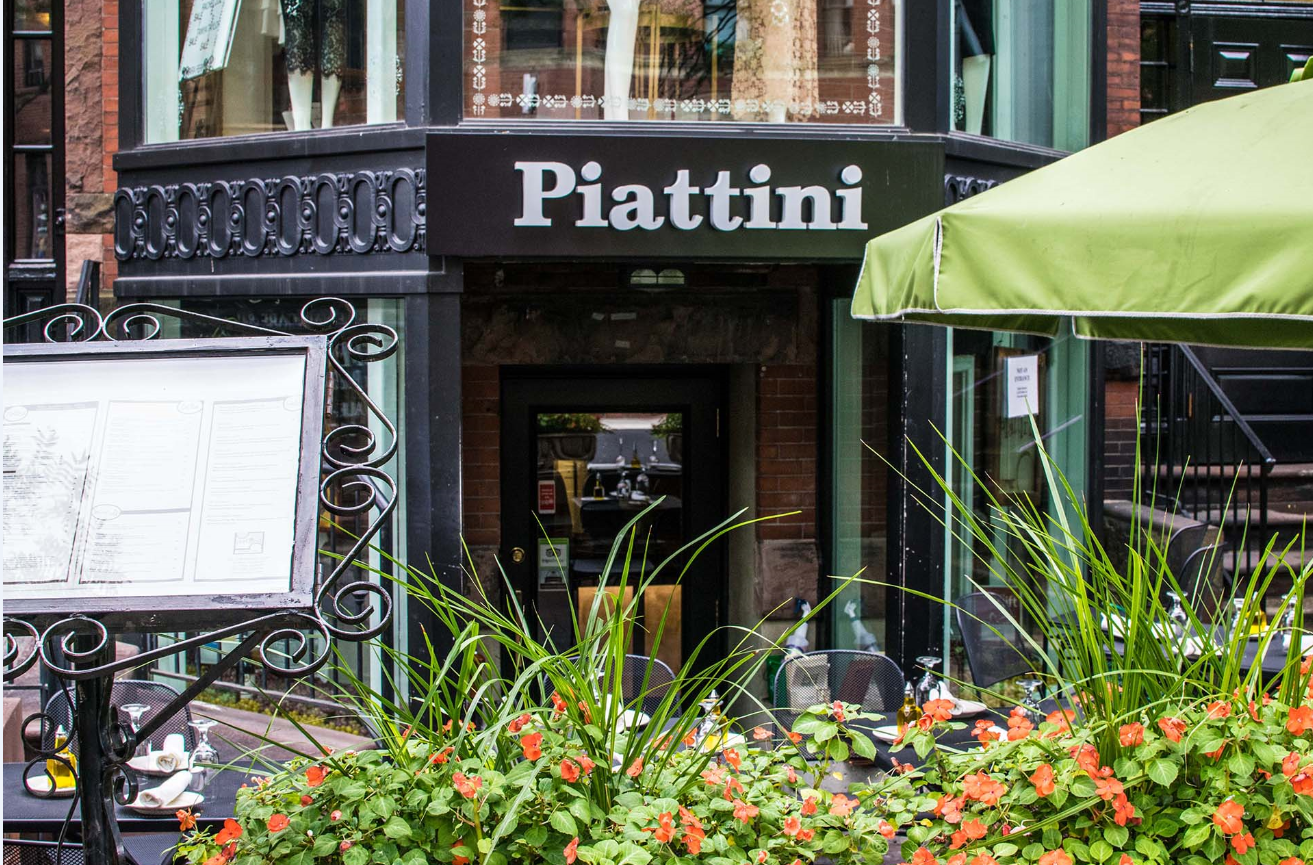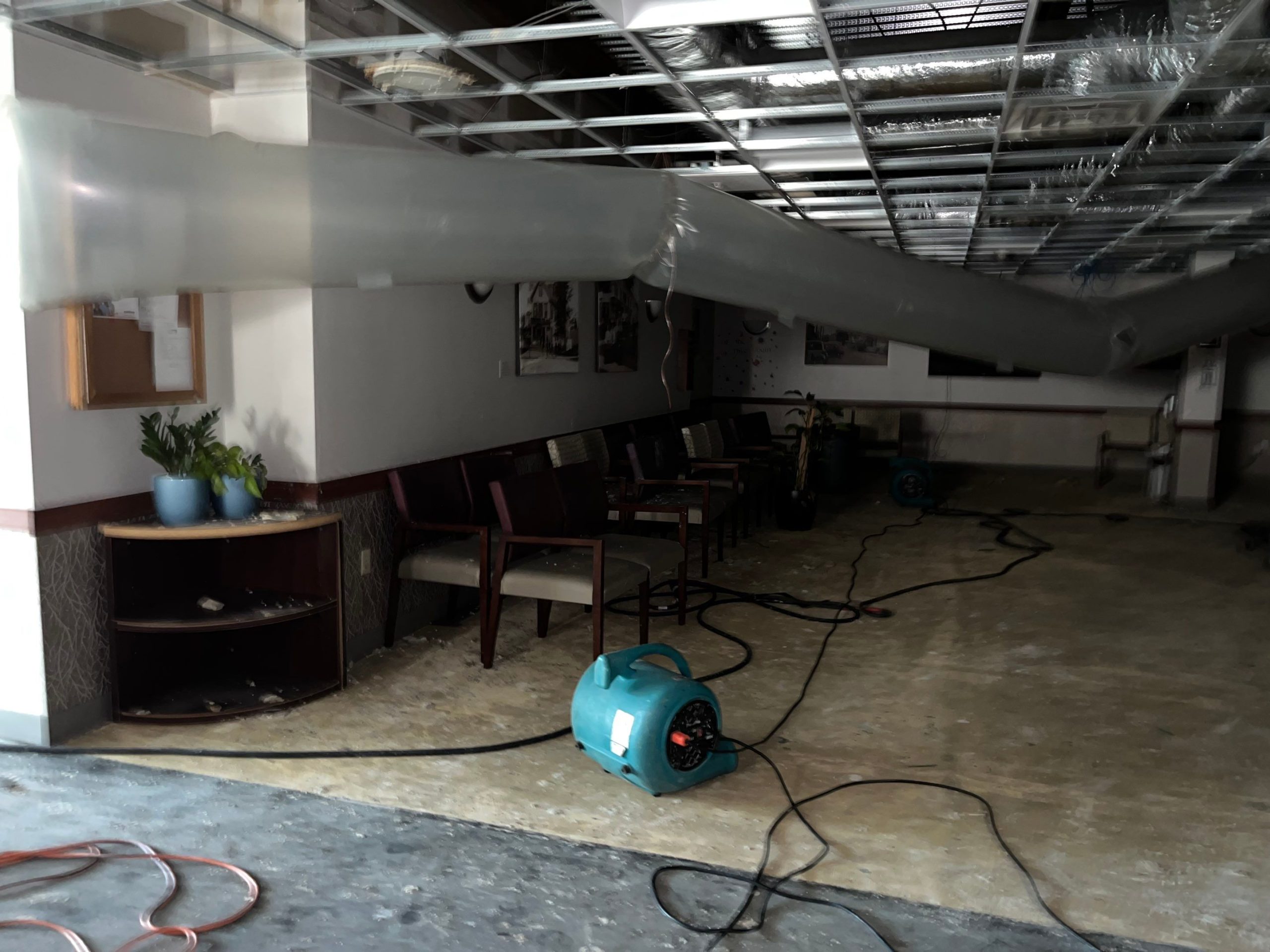Josephine Oliviero Megwa is the proud owner of Piattini, a much-loved wine bar/restaurant located on Newbury Street in Boston’s Back Bay, famous for its small plates and Italian entrees. On the evening of Sunday, October 16, 2016, Josephine received news that any business owner would surely dread: her restaurant was on fire.
The fire started in the art gallery above Piattini, but Josephine’s restaurant still had massive fire and water damage. SMW was able to help Josephine through the insurance claims process and the rebuild. In this installment of SMW’s client testimony series, we talk to Josephine to get her views on the process, including the role and value of a public adjuster in helping her business return to full health.
SMW: Josephine, tell us about the night you got the call about the fire.
Josephine: It was a Sunday night – October 16, 2016 at 6:05 pm, to be exact. I’ll never forget that. Initially it sounded like it was a fire upstairs and I thought maybe it wasn’t that big a deal. So, my first instinct was to drive in and check it out. But my husband said I should just go in the morning, because everyone was safe and it could wait. I have to say, I wasn’t as worried about it at first. Next morning, I drove in, and it was definitely much worse than I anticipated. The fire started upstairs, and there was a tremendous amount of damage. I’ll never forget the smell. It was very emotional. I remember feeling dizzy and light-headed. It was too much.
SMW: Had you ever heard of a public adjuster?
Josephine: I had heard of public adjusters, but thought PAs were just another part of the insurance company, and I didn’t think I needed one. Then, that morning, my sister Connie referred me to Bryan Holtzman. One of my bartenders had given me Diane Swerling’s name who was a customer. SMW was here within the hour – on site, talking to me. I was still dismissive of the idea, thinking I didn’t need a PA. I thought I could re-open in a few weeks. I’m a positive person; I always think I can overcome any obstacle.
SMW: Then what happened?
Josephine: Pretty quickly I found myself at a total loss as to what my first step would be. I didn’t know what I didn’t know. There were just so many details to chase down – documentation, numbers, and then how to re-build, get a contractor, go to City Hall. I immediately felt very welcomed by the SMW team. I felt like I was partnering with a team of professionals who knew how to navigate the process. Claimants have to learn how to speak insurance – it’s a different language, and I didn’t know where to begin. But SMW had a team in place. Over the course of weeks, days, months…I came to realize why you have payroll experts, building experts – SMW had an expert to handle each type of detail.
SMW: Your claim involved Improvements & Betterments, Business Interruption, Personal Property. Which was most difficult?
Josephine: They were all hard. As a business owner, I understood that the insurance company’s #1 objective was to pay out as little as possible on every claim. Prior to the fire, I hadn’t had any real claims, so I thought I would be protected. I didn’t know there was a waiting period, etc. – there were just so many things I didn’t know. That’s one big reason I decided I needed a PA. After the first hour I realized how much I truly did need this help. It’s not as easy as saying, ‘I’m going to start the repairs right now.” I didn’t even know how to dispose of the spoiled food. I was ready to throw it in a dumpster. Each piece of it was hard and very time consuming. SMW definitely made it easier. I can’t imagine doing it alone. I can’t think why anybody would want to.
SMW: Eventually we got the improvements portion settled. The two open items were personal property and the business interruption (BI) pieces. We couldn’t agree with the insurance company on the numbers. We tried every way – letters, phone calls. We exhausted every attempt. So we made a demand for Reference. We introduced you to an attorney who was an expert and he started preparing. How did you feel when it looked like we could go to Reference?
Josephine: My initial thought was, “Let’s get ‘em”, because I was at a point of extreme frustration. I felt like it wasn’t fair. They wanted receipts for every bit of work done over the years, which few business owners will have. We always had a stream of contractors, so it wasn’t like we had every item of work separately documented. I felt the insurance company was being unreasonable in asking for every little thing. So, when it got to the point of Reference, I was very frustrated. And there was a lot of money at stake. The attorney was great. SMW walked me through that. He knew everyone who was at the table – he had clearly worked with everyone before. We paid our premiums every month for 16 years. Then when I needed the insurance company’s help, they insisted on random receipts.
SMW: Which part of the Reference hearing was most difficult?
Josephine: For the BI claim, the biggest issue was tips and sales trends. That October was a warm month, and we did a lot of business on our patio. They wouldn’t take it into account that we could open and drive business. And on tips, they wanted to treat employees as ordinary employees, which ignored the culture of restaurants on Newbury Street and how we run our business.
SMW: On the trend piece we got a good number. After our testimony and cross, we felt good…the award was ok, not as good as we thought it would be. But that’s Reference – it’s not always as great as you hope it will be. Now – what would you do differently?
Josephine: Keep better records of everything. I’m a tenant, so for the Improvements and Betterments claim, I had to prove I paid for those. Typically, if a tenant can’t provide invoices demonstrating those improvements, the building owner gets to claim them. We paid a general contractor a lot of money to put in the bar and plumbing. But there was no specific invoicing for every item. That made it harder to recover in terms of the loss. It there was another casualty, I probably would not pay my employees tips. I would put them on unemployment insurance. That opportunity came up in a different way in COVID. My bank wanted me to get a PPP loan. But the restrictions for PPP required that I open by July 1. Well, I couldn’t guarantee that, so I didn’t take it. It turned out to be a good decision, as we didn’t reopen until July 20, and we did so at half-staff. So, another lesson is maybe don’t pay the tips, but put everyone at minimum wage. Or pick the people who you really want to keep with you. Because if you don’t pay minimum wage, the insurance company gets a credit against the BI claim. So that claim would have gone down. But overall — just keep better records. Be methodical about keeping receipts of everything.
SMW: OK, so you reopened. How did that go?
Josephine: When we reopened Dec 21, 2016, it was as if we had never closed. Having the employees back was a big plus – they knew the menu and the customers. Our customers were excited for us to reopen and came out in droves. January 2017 was the best January we ever had. We didn’t miss a beat.




